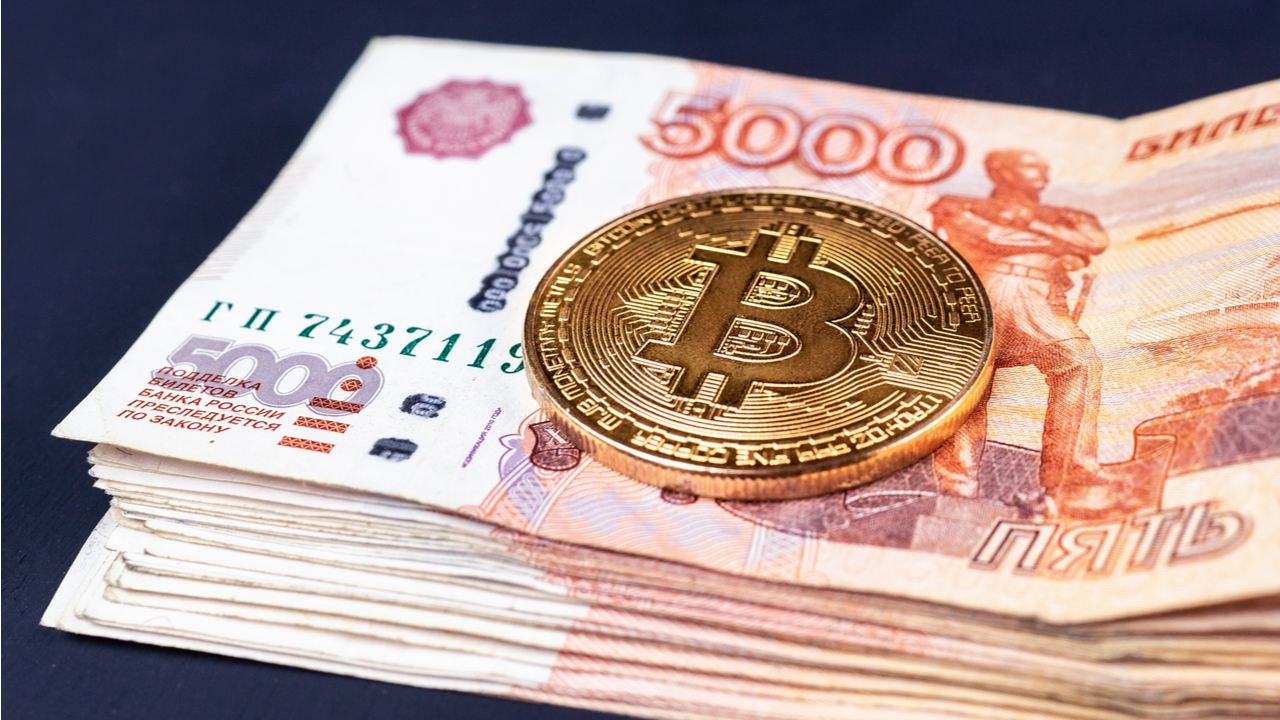
Russia’s recently revised bill “On Digital Currency” limits crypto purchases for non-qualified investors while providing legal ground for some cryptocurrency payments, according to local media. The draft law, proposed by the Russian finance ministry, also introduces strict requirements for platforms operating with digital assets.
Russian Citizens Who Don’t Pass Test to Buy Only $600 Worth of Crypto Annually
The Ministry of Finance of Russia recently submitted to the government an updated version of its bill “On Digital Currency” designed to comprehensively regulate the country’s crypto market. Details about the law’s provisions have surfaced in Russian media reports this week.
According to the draft, qualified investors, or “professional purchasers of digital currency” as they are now described, will have unrestricted access to crypto assets. Ordinary Russians, however, will be able to buy a maximum of 600,000 rubles (approx. $7,000) worth of cryptocurrency each year. And that’s after they take a special exam.
Those Russian residents who fail to pass the test will be allowed to only acquire coins with a total value not exceeding 50,000 rubles annually (around $600 at the current exchange rates), the Interfax news agency revealed, quoting a source familiar with the document.
The new law defines the term ‘digital currency’ as “a set of electronic data contained in an information system that can be accepted as a means of payment that is not the monetary unit of the Russian Federation, or as an investment.” Digital currency is considered property in Russia, the report notes.
The wording seems to provide the legal basis for the employment of cryptocurrencies in payments. But at the same time, the bill reads that Russian legal entities, including subsidiaries of foreign companies and international organizations established in Russia as well as individuals staying in the country for at least 183 days within 12 months, cannot accept digital currency as payment for goods and services.
The finance ministry has been lobbying to legalize the circulation of cryptocurrencies in Russia while the central bank has opposed the idea and suggested a ban on crypto-related activities such as the issuing and trading digital coins. Most other institutions in Moscow are backing the Minfin’s approach but there’s also a general consensus against allowing payments with any other currency than the ruble.
Russia to Introduce Stringent Standards for Cryptocurrency Companies
The draft law “On Digital Currency” is going to impose strict requirements for crypto platforms working in the Russian Federation. An “exchange operator,” which offers purchases and sales of digital currency on its own behalf and at its own expense, will have to keep at least 30 million rubles of capital. The mandatory threshold for “operators of digital trading platforms,” or those “conducting organized auctions,” is 100 million rubles.
If the bill is adopted as is, these businesses will have numerous other responsibilities, including preparing annual reports, maintaining records of digital currency owners, storing and backup trading data on a daily basis, and carrying out internal audits. The service providers will be added to a special register and their activities will be licensed and overseen by an authorized body appointed by the government.
The requirements are “extremely overstated” and only the largest financial institutions will be able to meet them, blockchain lawyer Mikhail Uspensky commented for the Kommersant. Besides, only Russian entities will be permitted to apply for the role of crypto operators. Foreign exchanges, for example, will have to establish a local subsidiary to obtain a license but many of them may be prevented from doing so by mounting western sanctions over Russia’s war in Ukraine.
Quoting the draft, the Russian business daily also unveiled that only identified users will be able to buy and sell digital currencies. Fiat deposits and withdrawals will be possible exclusively through bank accounts and crypto platforms will be obliged to report suspicious transactions to the Rosfinmonitoring financial watchdog. “Electronic wallets for digital currencies” will be subject to mandatory certification, although this applies only to wallets within the Russian crypto infrastructure.
The bill “On Digital Currency” allows both companies and individual entrepreneurs to engage in crypto mining, once they register with the government. Registration is not required for private Individuals minting digital coins if the electrical energy consumed for this purpose does not exceed certain limits that will be determined by the relevant authorities.
If Russian lawmakers approve the law, it is expected to enter into force on Jan. 1, 2023. The State Duma, the lower house of Russian parliament, is now also reviewing amendments tailored to regulate the taxation of crypto-related operations in the country.
Do you think Russia will implement the strict regulations for crypto platforms envisaged in the draft law “On Digital Currency?” Share your expectations in the comments section below.
from Bitcoin News https://ift.tt/TszSyvf
Comments
Post a Comment